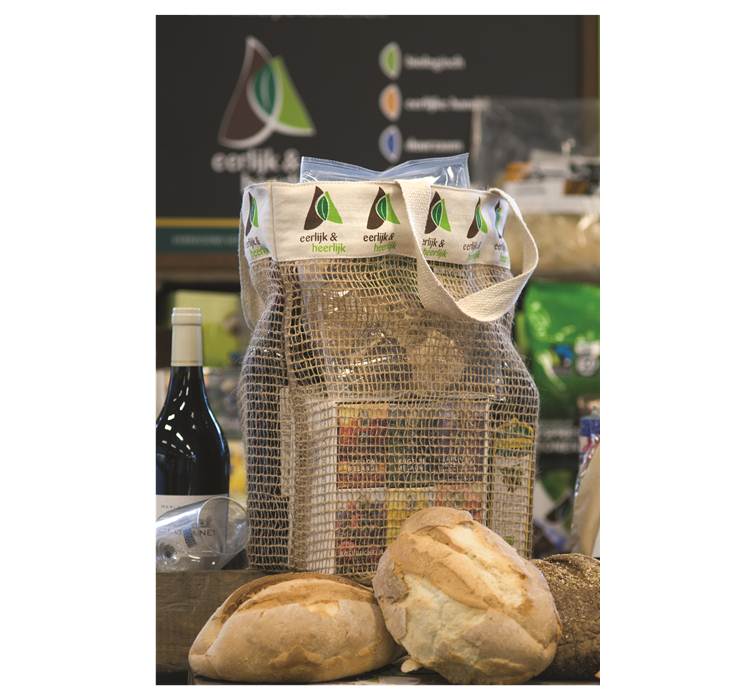Sligro’s strong pure jute bag
With the introduction of its ‘eerlijk & heerlijk’ (‘fair & delicious’) concept, Sligro switched from plastic bags to bags made of jute and cotton. The benefits are countless.
 Over 1.5 billion plastic bags go over the counter annually in the Netherlands. On average, they are only used for 12 minutes. There are three main routes of disposal: plastic recycling collection, non-recyclable waste and litter. Sligro switched to bags made of jute and cotton, aimed at long-term use, for the introductory packs of its eerlijk & heerlijk concept. Customers were enthusiastic as well as surprised: that a seemingly fragile bag could hold 8 kilograms.
Over 1.5 billion plastic bags go over the counter annually in the Netherlands. On average, they are only used for 12 minutes. There are three main routes of disposal: plastic recycling collection, non-recyclable waste and litter. Sligro switched to bags made of jute and cotton, aimed at long-term use, for the introductory packs of its eerlijk & heerlijk concept. Customers were enthusiastic as well as surprised: that a seemingly fragile bag could hold 8 kilograms.
Like trees, jute purifies the air by absorbing a great deal of CO2. However, jute has a far greater capacity for absorption. Its cultivation is alternated with potatoes or rice and it can be regarded as a renewable raw material. Alternating cultivation with potatoes or rice works well, because jute absorbs excess water from heavy rainfall. Finally, certain nutrients in the roots make the ground more fertile. All this means these bags have a low energy consumption. The production process, from cultivation to weaving, is done by hand without the use of machinery. It is transported to the Netherlands by boat. The producer has purchased carbon credits – a method by which companies offset their environmental footprint.